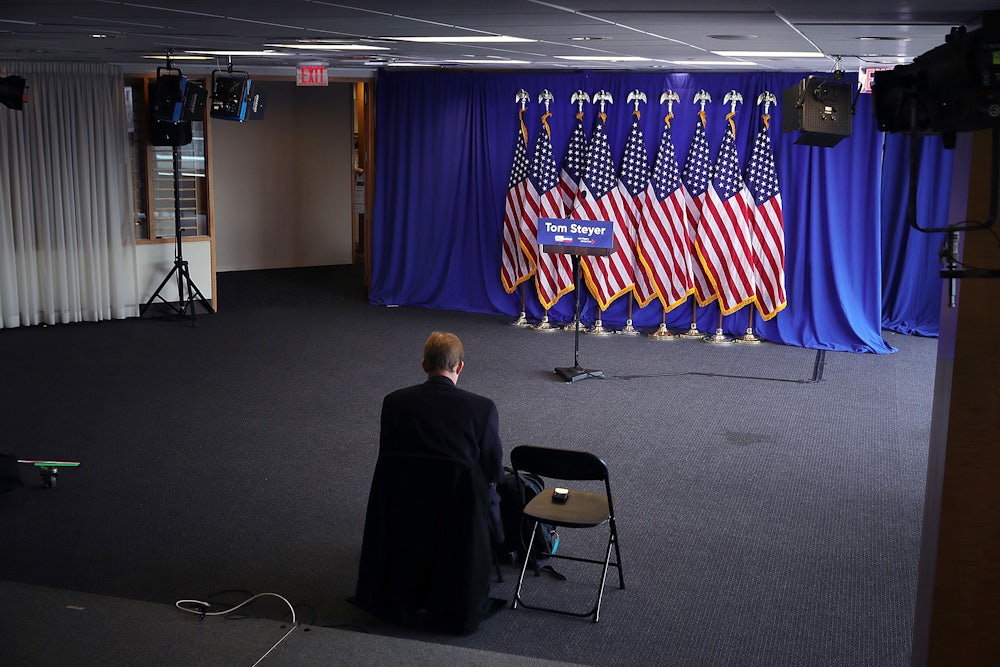Political reporters will do almost anything to avoid making a judgment call. That’s why they revel in seemingly objective truths like poll numbers and fund-raising reports, often taking as gospel the boast of bygone Republican Phil Gramm: “I have the most reliable friend you can have in American politics, and that’s ready money.”
In reality, money was a fair-weather friend even in 1996, when Gramm, a Texas senator, was ballyhooed as a major presidential contender because he kicked off his campaign by raising $4.1 million at one high-roller dinner in Dallas. Gramm, who had the charisma of pocket lint, flamed out after losing the Louisiana caucuses, which his supporters thought they had rigged.
Even so, the singer Sophie Tucker’s philosophy (“I’ve been rich and I’ve been poor. Rich is better”) also applies to politics. In this century, the congressional candidate with the most money has won in roughly 90 percent of all contests.
Ever since ethics reforms in the 1970s required accurate reporting of campaign spending, political scientists have debated whether money dictates outcomes, or whether front-runners merely attract contributions because big-money donors are predisposed to see them from the outset as winners. But with the rise of cable news, campaign cash has played a smaller and even more ambiguous role. Donald Trump proved in 2016 that breaking political norms every night earned him more sustained TV coverage than any campaign ad could. The media saturation helped send a shell-shocked Jeb Bush (supposedly protected by his $118 million super PAC) and Hillary Clinton (who outspent Trump two-to-one) to political retirement.
Many political reporters seem determined not to learn the lessons of 2016. They treat money, particularly the quarterly filings to the Federal Election Commission, with a reverence worthy of Gordon Gekko. Panicked donors are a campaign trail staple, as in this Politico story headlined: “‘It’s Too Much’: Democrats Shudder at Trump’s Money Machine.” They are assuming the fetal position, supposedly, because the Trump campaign already has $158 million in the bank for his reelection drive.
Yeah, sure. Trump already ran his first TV ad (“He’s no Mr. Nice Guy”) during the World Series. But whose opinion will it change? Perhaps a survivalist who has been off the grid since the collapse of Lehman Brothers. But no flotilla of glossy “morning in America” ads will change the minds of most Americans. And rightful liberal rage against Trump guarantees the Democratic nominee an outpouring of giving unmatched since the Medicis.
Soporific billionaire Tom Steyer has lavished at least $35 million on television ads since he entered the presidential fray in July. Once, that outlay might have won him more than mockery. Steve Forbes poured $37 million of his own money into the 1996 GOP race and shot up to second place. But at the end of October, Steyer was struggling to rise above 1 percent.
It would be foolhardy to dismiss the benefits that flow to Bernie Sanders and Elizabeth Warren from their online fund-raising machines. (These digitized donor campaigns free both candidates from the soul-deadening fund-raisers that send other hopefuls to Beverly Hills instead of Bettendorf, Iowa.) And Pete Buttigieg has pulled ahead of a flailing Kamala Harris in part because the mayor of South Bend, Indiana, (population: 102,000) has collected at least $14 million more in contributions than the senator from California (population: 39.6 million).
An underdog candidate, like Amy Klobuchar or Cory Booker, with credible but not unlimited funding could always break through in Iowa or New Hampshire. Victory brings with it a wave of contributions, and in presidential races, sometimes Goliath loses, or at least stumbles around punch-drunk for a few rounds. And that’s why campaign reporters play into a storyline that elevates the importance of Wall Street and Silicon Valley bundlers when they pretend that dollars are destiny.
